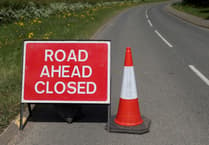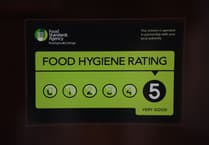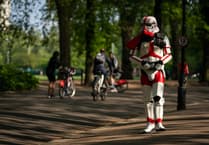STRIKE action is due to hit south Devon in January with further planned walkouts along with balloting of more unions.
Driving tests in Newton Abbot will be affected by strike action today and ambulance staff will be taking more action tomorrow.
Driving examiners who are members of the Public and Commercial Services union are due to strike today in a dispute over pay, pensions, jobs and redundancy terms.
The action means means some practical tests, including those in Newton Abbot, will not take place, although theory tests should go ahead.
Car, motorcycle, lorry, bus and minibus tests are among those that may be affected, according to the Driver and Vehicle Standards Agency.
Staff at the Driver and Vehicle Licensing Agency in Swansea and Birmingham have also begun a five-day dispute over pay, pensions and jobs.
Six hundred workers from the Public and Commercial Services whose job it is to maintain the database for driving records and vehicles and assess people’s ability to drive before granting them licenses are taking part in the latest round of industrial action by civil servants.
The union said it is calling for an above-inflation pay increase for its members.
The PCS is calling for a 10 per cent pay rise, better pensions job security and no cuts to redundancy terms.
Tomorrow, Wednesday, ambulance workers in the south west are due to join 25,000 across England in further action in their dispute over pay.
The strike had been scheduled by members of the GMB Union for December 28 but was delayed until January 11 when members of UNISON will also strike.
The action involves paramedics and 999 call handlers.
The 24 hour strike from midnight, will involved all ambulance crews.
Unions have said life-threatening calls to 999, as well as the most serious emergency calls, will still be responded to.
Unions have asked for above inflation pay rises while governments in England and Wales have given NHS staff an average rise of 4.5 per cent.
Sir Stephen Powis, national medical director for NHS England, said: ‘We’ve been working very closely with the unions to ensure that emergency services for life-threatening conditions are maintained, and that will include stroke and heart attacks.
‘There are increased clinicians in call centres to ensure that the right response goes out to the right incident.’
South Western Ambulance Service has previously issued advice to the public to ‘think carefully’ before dialling 999.
Along with the nurses strike action, Environment Agency workers have voted to strike for the first time in its history.
UNISON Environment Agency members were balloted for industrial action in late 2022 and voted to take industrial action, both in the form of strike action and action short of a strike.
Following a series of days of action short of strike in December, members will be taking full strike action on Wednesday January 18 and not take part in any work activity.
Their action is over a pay increase to keep pace with the cost of living after pay was ‘seriously eroded’ after many years of below inflation rises.
Unison, which represents just under 3,000 workers, confirmed its members had voted to walk out between 8am and 5pm on 18 January.
During the planned strike on the 18th, workers have agreed to step in as emergency ‘life and limb cover’ if there is a threat to life or property from extreme weather.
Other unions are considering taking industrial action include:
About 100,000 civil servants have voted to strike across different government departments.
Junior doctors in England, represented by the British Medical Association, are planning to hold a ballot in January, over a pay deal which will give them two per cent this year.
Firefighters are being balloted on potential strike action over pay. The Fire Brigades Union says the current five per cent pay offer is ‘derisory'. The ballot closes on January 30.
Paul Nowak, the new general secretary of the Trades Union Congress, has warned of a ‘rolling wave’ of strikes next year unless ministers give ground on pay, with unions taking coordinated action so that stoppages happen either on the same day or in quick succession.





Comments
This article has no comments yet. Be the first to leave a comment.